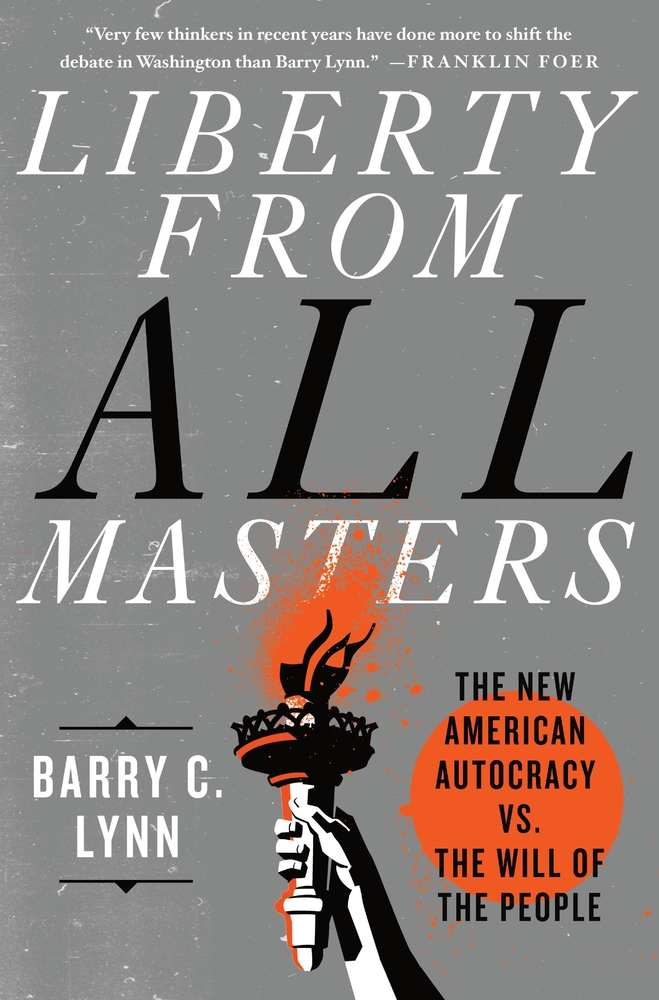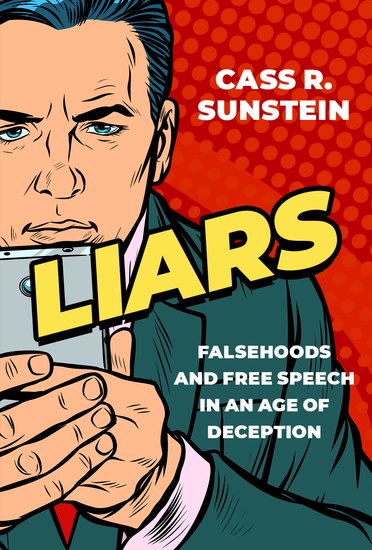Does a book need a preface and an introduction? Should a book have a title that makes it seem like the author couldn’t choose what to call a book, so they just didn’t decide? I don’t know the answer to those questions, but the book Liberty from All Masters: The New American Autocracy vs. the Will of the People by Barry C. Lynn, has both a preface and an introduction and, yeah, has that title. I had seen the author and his previous works referenced in some other books I read in the recent past, so when I saw he had a new book coming on a topic I was interested in, monopolies, I wanted to check the book out. I came away quite disappointed with what I read, though I only made it through the first chapter because the book was so dishonest that I couldn’t in good conscious keep reading it. That is saying something because it has been years since I didn’t make it through a book, even if I found it wanting.
Propaganda would seem like a good way to describe what I found in the book. Take this paragraph for example:
As president, Bill Clinton even took actions to concentrate power within the corporation, such as promoting changes in tax policy that led corporations to shift executive compensation from salary to stock, thereby aligning the interests of executives with the investor rather than the customer , employee, and community.24
I was familiar enough with what that was referring to know that wasn’t an accurate description. The author should have been aware of that as well, considering what is included in the footnote for that:
Brian Cheffin, The Public Company Transformed (Oxford: Oxford University Press, 2018); Sarah Anderson, “The Failure of Bill Clinton’s CEO Pay Reform,” Politico, August 31, 2016; Jena McGregor, “This Tax Loophole Led to Massive CEO Pay Packages,” Washington Post, November 22, 2017. See also Lemann, Transaction Man: The Rise of the Deal and the Decline of the American Dream.
A portion near the beginning of the Politico article cited spells this out:
When Bill Clinton entered office a year later, he vowed to do something about skyrocketing CEO pay, through a proposed cap on the tax deductibility of executive compensation. But the reform that ultimately passed Congress was watered down, creating an epic loophole that pushed CEO pay even further into the stratosphere.
So Bill Clinton did take an action as Mr. Lynn states, but it wasn’t intended to do what it ended up doing, something it seems he should have known and it seems he wrote that in the way he did to intentionally to get around that.
Other things don’t seem to make sense, like this (emphasis in original):
Why is your rent so high? And why will your mortgage never go away? It’s because monopolist use their massive piles of cash to drive up the price of the land right under your home, so they can charge you more to sleep.
If you are paying down the principle on your mortgage, it will eventually go away. If you own the land under your home, which it seems like is true for most single-family homes, then raising its price would increase the value of something you own, not increase your mortgage. What “land right under your home” might refer to are manufactured homes (mobile homes), but that isn’t mentioned there.
There are unsourced claims that don’t seem accurate, like this:
But what of the monopoly utility corporations that block us from installing solar panels on our roofs or recharging stations on our streets?
Some utilities have done things to raise the cost for those with solar panels, but I couldn’t find anything about them blocking their installation.
Based on all that, you might think that the book was self-published, but it was published by one of the biggest publishers, St. Martin’s Press.
With the book being this bad, I feel like it is worth noting the people that blurbed the book:
- Francis Fukuyama, author Identity: The Demand for Dignity and the Politics of Resentment
- K. Sabeel Rahman, president of Demos
- Paul Rome, Nobel Prize-winning economist
- Rana Foroohar, authors of Makers and Takers
I am regularly running across books that have blurbs from Francis Fukuyama. Is that luck of the draw due to the types of books I am reading, or does he just blurb tons of books?
Bottomline
I would strongly recommend avoiding this book. If you are looking for a recent book on monopolies, David Dayen’s Monopolized: Life in the Age of Corporate Power, which came out in July, is one I found very good.


